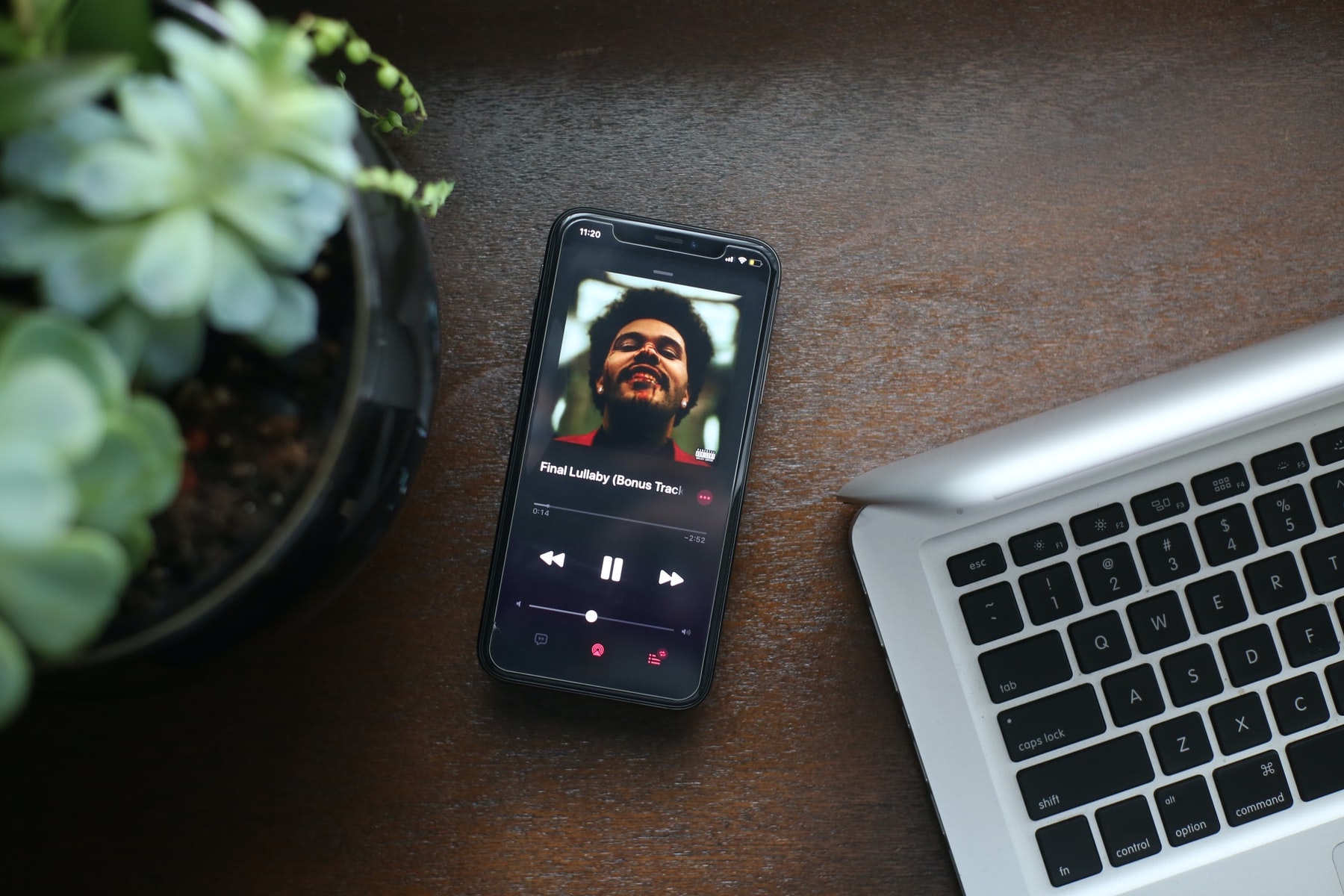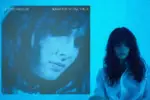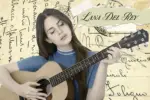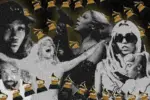The Weeknd has been in the limelight since the release of his first album, “Trilogy,” and as the years go by, he only seems to gain more fans and media attention. The Weeknd’s so popular, in fact, that his high-pitched, versatile voice, quirky dance moves and charismatic personality have drawn comparisons between him and the King of Pop himself: Michael Jackson.
Fans Drawing Comparisons Between Jackson and The Weeknd
After the release of The Weeknd’s “The Hills,” whose eerie chord progressions mirrors Jackson’s “Thriller” so closely that a mashup of the two was created, and “Dirty Diana,” a cover of a Jackson original, fans have rushed to equate the two artists.
“In the Night,” from The Weeknd’s album “Beauty Behind the Madness,” is yet another song in which fans have found Jackson-esque qualities. As acclaimed songwriter Savan Kotecha attested, the groove patterns in The Weeknd’s “In The Night” take clear cues from the swinging patterns of Jackson’s famous “The Way You Make Me Feel.”
In addition to the clear parallels drawn between Jackson’s and The Weeknd’s songs — found in the meanings, chord progressions, grooves and rhythms — fans have noticed similarities between the two standout artists’ magical voices, their elusive yet charismatic personalities and their unyielding stage presence.
As the Guru article “3 Reasons Why The Weeknd is Michael Jackson Reborn” argued, The Weeknd’s magical voice is “smooth and smoky like an old whiskey.” His voice, like Jackson’s, is “so hypnotic that you yearn for more every time you listen.” I can’t help but agree. Despite hearing the intro to “Blinding Lights” upward of 300 times on TikTok, I still find the chords and lyrics catchy — an earworm if you will — and it’s unlikely that I’ll tire of this hit anytime soon.
As this article continues, it details The Weeknd’s elusive charm in relation to Jackson’s. Jackson’s mix of shy interviews, constant plastic surgeries and weird stunts like adopting a pet chipmunk all helped to build his mystique — and devoted fanbase. The Weeknd is no different; his minuscule number of interviews and commentary as well as his on and off private relationships with Bella Hadid and Selena Gomez only add to his mystery and elusiveness. The Weeknd’s last media stunt — his faked nose job — and his vague responses to the ordeal further establishes his mysterious persona.
Finally, like his predecessor, The Weeknd is in the midst of building an electric stage presence. The black suit, curly hair, white gloves, face-covering hat and “mind-blowing” moonwalk all became iconic signifiers of the King of Pop, resulting in live performances that sold out in a mere “matter of seconds.” The Weeknd, too, is well on his way to creating his own set of iconic signifiers, with his staple leather jacket, signature sneakers, distinct stage lighting and slick dance moves, not to mention his more recent persona established by his red beaded jacket, black and white dress shoes and a face covering. It seems that The Weeknd is reinventing his outward appearance to send a message, which leads us to …
The Weeknd’s Super Bowl Performance
The Weeknd’s Super Bowl performance was gripping, as all eyes turned to his signature sequined red jacket and the flashy pyrotechnics — which were a nod to Jackson’s 1993 Super Bowl entrance — coupled with dozens of bandaged backup dancers.
After the performance, viewers rushed to Twitter to share their thoughts about the stimulating show. Many found connections between The Weeknd’s and Jackson’s Super Bowl performances, including Questlove, who tweeted, “Lol I knew he was going to do a subtle nod to MJ’s Super Bowl entrance.” Jayden Panesso also found similarities: “Love the Michael Jackson Vibes from The Weeknd. So fire.”
Others took a more critical tone. As actor Reagan Gomez tweeted: “Lol ain’t nobody the *new* Michael Jackson. NOBODY.” And as always, comedic trolls loomed ever-present, with hilarious memes from the Super Bowl ravaging social media.
The Weeknd, though, had other intentions for his performance. The Super Bowl halftime show, as The Weeknd noted, was intended to be a continuation of his yearlong narrative circling around his “Heartless” music video. The video was based on Gonzo journalist Hunter S. Thompson’s book “Fear and Loathing in Las Vegas,” which depicts “a reckless man with a death wish” as he “staggers around the Sin City casinos, licks a hallucinogenic toad, and goes off into the abyss.”
Ultimately, despite the massive number of memes and flaming tweets that arose from this performance, the elaborate storyline was intended to shine a light on what celebrities often do to stay “young” and “relevant” in Hollywood. The head bandages were meant to signify the “absurd culture of Hollywood celebrity and people manipulating themselves for superficial reasons to please and be validated.” He continued by telling Variety that “it’s all a progression and we watch the Character’s storyline hit heightened levels of danger and absurdity as the tale goes on.”
The Weeknd’s Response
The Weeknd, like any young artist, was undeniably inspired by his pop legend predecessor. Notably, in a New York Times article a few years ago, he said that one day he hoped to be “as influential as Whitney Houston and Michael Jackson for the youth of today.” Setting his hopes for the future high, he also ambitiously noted: “Who else is there? Who else can really do it at this point?”
Flash-forward to today, where everyone in the world knows The Weeknd’s name, as his songs and albums repeatedly land and remain at the top of the charts. He’s well on his way to fulfilling these dreams.
He also doesn’t deny the influence of Jackson’s music on his own musical ambitions; when he first read the lyrics to Jackson’s “Dirty Diana,” he “got emotional” because it was the moment when he “first knew that he wanted to write songs.”
The singer went on even further in a trailer for the documentary “Michael Jackson’s Journey From Motown To Off The Wall,” which explores the influence of Jackson’s album “Off the Wall” on modern pop musicians; in a clip, The Weeknd says that he “found his falsetto” because of Jackson’s album “Off the Wall,” specifically with the song “Don’t Stop ‘Til You Get Enough.” The Weeknd also discussed Jackson’s central influence on his music, saying that he “always used Michael as, first and foremost, a vocal inspiration.”
However, it’s essential to mention that despite the clear inspiration that The Weeknd has taken from the King of Pop, The Weeknd adamantly declares that he is his own, distinct artist, with his own definite musical techniques and originality. In response to an overwhelming number of comparisons between the two artists, The Weeknd commented that “there was like a backhanded thing [to the comparison] that didn’t feel genuine. It felt like they were setting me up for disaster, I wanted to transcend. I wanted the music to transcend.”
Like any creative, ingenious musical artist, The Weeknd is resolute about his originality and his musical craft. Claiming that The Weeknd is a mere carbon copy of Jackson is demeaning to his art and his life’s work.
From his stint with the head bandages, The Weeknd is trying to send a message: a message about a societal need — especially in Hollywood — to change oneself in order to entertain others and to feel approval. In other words, The Weeknd is making a salient comment about the inauthenticity in Hollywood. Consequently, with this statement, he is reasserting the authenticity of his musical craft and performance. The Weeknd is not a duplicate of Jackson; rather, he learned from the King of Pop and created his own musical genius, taking cues from a past legend.

















